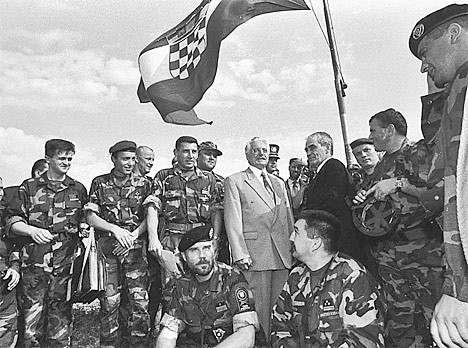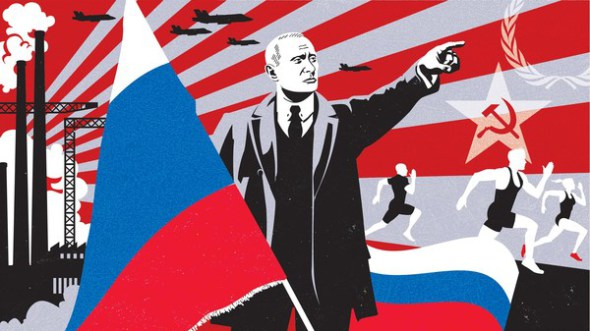As Moscow’s geopolitical isolation has increased, Dmytro Khmelnytskyi says, the role of its agents of influence abroad and the enormously variegated organizations that recruit and direct them has increased far beyond what they were during the Cold War when anti-communism served as a constraint.
Some of these organizations are directed at the local communities; others at emigres from the USSR and Russia, “although sometimes both these tasks are addressed by one and the same organizations,” Khmelnytskyi continues. But overwhelmingly, they are specialized and work “with the most varied political, ethnic, social, cultural and professional communities.”
And in a lengthy article, Khmelnytskyi presents an effort to classify these various groups in order to aid others in making sense of and then ultimately countering what Moscow is doing.
Since Vladimir Putin came to power, Moscow has created several major and many minor organizations to work with Russian and Soviet emigres. Among the most important are:
- The International Council of Russian Compatriots (founded in 2002),
- The World Coordinating Council of Russian Compatriots Living Abroad (set up in 2007),
- The World Congress of Russian-Speaking Jewry (established in 2002) and
- The Russian World Foundation, a pass-through funding group which now operates more than 200 Russian centers around the world.
This list, of course, Khmelnytskyi says, “is only the tip of the iceberg. There are also Moscow agencies which … are involved, beginning with RosSotrudnichestvo, a body that deals with CIS affairs, compatriots abroad and “international humanitarian cooperation. It was set up in 2008 as the successor to the Soviet VOKS which was created in 1958.
It has 95 foreign representations, and in 62 countries, it operates 72 Russian centers of science and culture. “Besides propaganda work in the emigration, its tasks include attracting foreigners to study in Russia.”
“Immediately after Putin came to power, his government began to undertake a systematic and very successful effort at subordinating itself the mass media, both inside Russia and of Russian media abroad.” It bought existing outlets, like Russkaya mysl in Paris, transforming them from dissident outlets to pro-Kremlin mouthpieces and taking their archives to Moscow.
Indeed, today, there are few Russian media outlets outside Russia that are not loyal to the Kremlin. But in addition to subordinating to itself pre-existing newspapers and journals, Moscow has created a large number of new ones. Golos Germanii is typical. It publishes translations of Moscow articles and the writing of German agents of influence.

To coordinate all this activity, Moscow created in June 1999 the World Association of the Russian Press, a group that has held annual meetings throughout the world and sought to impose a common agenda on all Russian media regardless of where they are located, Khmelnytskyi continues.
Another arrow in Moscow’s quiver in this regard is the Russian-Speaking Academic Science Association, a group set up to cover Moscow’s industrial espionage in the West but also an organization the Russian authorities use to identify potential agents of influence and to direct their activities.
And yet a third are the organizations the Russian special services have set up to work with targeted nations such as the Germans. Two years ago in Berlin was opened something called “The Dialogue of Civilizations Research Institute,” a group headed by Vladimir Yakunin, a Russian oligarch close to Putin, and supposedly independent, devoted to research and interested in international security.
“But all this generates great doubts,” Khmelnytskyi says. “There is no basis for talking about its independence, its research or its commitment to international security. In fact, everything is exactly the reverse. This is just another specific organization dreamed up specially for work with German political and business circles” to promote Moscow’s interests.
Read More:
- West fails to recognize nature and scope of Putin’s hybrid war against it, Eidman says
- Russian propaganda in Montenegro, Sweden, and Finland – and how they’re fighting back
- Who’s most at risk of assassination by Putin’s siloviki? Kirillova provides a typology
- Kremlin-linked Russian commentators step up calls for ‘destruction’ of Ukraine
- Victory Day celebrations “Immortal Regiment”: Russia’s “special operation”
- Money, sex, caviar, and 17 delegates: what you need to know about the bribing scheme in PACE
- A Killing Epidemic: The Culling of Russia’s Opposition Journalists
- Behind the smokescreen: who are the actors spreading disinformation on ex-Russian spy Skripal?
- Nunes Memo – Colossal blow to US national security, say FBI and CIA veterans
- Trump ‘playing for Russian side’ now, Moscow commentator says
- They called him “Yuriy”: the KGB past of the man who advocates restoring Russia at PACE
- How the head of PACE became Putin’s lackey
- Moscow intensifies its efforts to use Russian emigres to promote Kremlin policies
- How Russia recruits Serbian mercenaries into the ranks of its fighters in Donbas
- The Kremlin’s chaos strategy in Ukraine and its helpers
- Russia will continue efforts to destabilize Montenegro, expert says
- Servility and Guilt: Putinists among Russia’s diaspora
- Moscow diplomats said behind formation of militarized Russian and Cossack groups in US
- How the Kremlin influences the West using Russian criminal groups in Europe
- Putin overplays his hand with Lisa Case in Germany and loses friends in Berlin, Mitrokhin says
- Moscow’s plan to organize Russian émigré groups into EU parties seen backfiring
- Analysts: Russia today far more dangerous than USSR was and West far less ready to counter it
- Containment of Putin’s Russia in today’s globalized world won’t be easy or even enough
- Book details Kremlin’s influence networks in France





